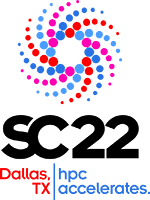
SC22
December 8, 2021
Being part of the SC Conference enhances your career – whether you are presenting new research, showcasing innovative work or practices, helping teach the nex Read more…

IDC: The Changing Face of HPC
July 16, 2015
At IDC’s annual ISC breakfast there was a good deal more than market update numbers although there were plenty of those: “We try to track every server sold, Read more…

Big Data Rains Down on Seattle
October 20, 2011
At SC11 in Seattle, the stage is set for data-intensive computing to steal the show. This year's theme correlates directly to the "big data" trend that is reshaping enterprise and scientific computing. We give an insider's view of some of the top sessions for the big data crowd and a broader sense of how this year's conference is shaping up overall. Read more…

The Weekly Top Five – 05/26/2011
May 26, 2011
The Weekly Top Five features the five biggest HPC stories of the week, condensed for your reading pleasure. This week, we cover the NC State effort to overcome the memory limitations of multicore chips; the sale of the first-ever commercial quantum computing system; Cray's first GPU-accelerated machine; speedier machine learning algorithms; and the connection between shrinking budgets and increased reliance on modeling and simulation. Read more…


Scientific Languages Finding Their Way into Enterprise
October 27, 2010
Languages like R and MATLAB, which were once unofficially reserved for technical computing domains are slowly finding their way into enterprises due to the rise in demand for large-scale data analytics. This demand is coupled with recent announcements about cloud-based ways to use these languages, opening new doors to access and use. Read more…

Web-based Tool Battles Dishonest Campaigning
September 28, 2010
Truthy.indiana.edu exposes dirty politics on the Web. Read more…

NASA Launching Supercomputing Application
April 16, 2010
Even computer-unsavvy scientists will be able to use NASA Earth Exchange to collaborate on modeling and analysis of large data sets. Read more…

- Click Here for More Headlines

Whitepaper
Transforming Industrial and Automotive Manufacturing
In this era, expansion in digital infrastructure capacity is inevitable. Parallel to this, climate change consciousness is also rising, making sustainability a mandatory part of the organization’s functioning. As computing workloads such as AI and HPC continue to surge, so does the energy consumption, posing environmental woes. IT departments within organizations have a crucial role in combating this challenge. They can significantly drive sustainable practices by influencing newer technologies and process adoption that aid in mitigating the effects of climate change.
While buying more sustainable IT solutions is an option, partnering with IT solutions providers, such and Lenovo and Intel, who are committed to sustainability and aiding customers in executing sustainability strategies is likely to be more impactful.
Learn how Lenovo and Intel, through their partnership, are strongly positioned to address this need with their innovations driving energy efficiency and environmental stewardship.
Download Now
Sponsored by Lenovo
Whitepaper
How Direct Liquid Cooling Improves Data Center Energy Efficiency
Data centers are experiencing increasing power consumption, space constraints and cooling demands due to the unprecedented computing power required by today’s chips and servers. HVAC cooling systems consume approximately 40% of a data center’s electricity. These systems traditionally use air conditioning, air handling and fans to cool the data center facility and IT equipment, ultimately resulting in high energy consumption and high carbon emissions. Data centers are moving to direct liquid cooled (DLC) systems to improve cooling efficiency thus lowering their PUE, operating expenses (OPEX) and carbon footprint.
This paper describes how CoolIT Systems (CoolIT) meets the need for improved energy efficiency in data centers and includes case studies that show how CoolIT’s DLC solutions improve energy efficiency, increase rack density, lower OPEX, and enable sustainability programs. CoolIT is the global market and innovation leader in scalable DLC solutions for the world’s most demanding computing environments. CoolIT’s end-to-end solutions meet the rising demand in cooling and the rising demand for energy efficiency.
Download Now
Sponsored by CoolIT
Advanced Scale Career Development & Workforce Enhancement Center
Featured Advanced Scale Jobs:
HPCwire Resource Library
HPCwire Product Showcase
© 2024 HPCwire. All Rights Reserved. A Tabor Communications Publication
HPCwire is a registered trademark of Tabor Communications, Inc. Use of this site is governed by our Terms of Use and Privacy Policy.
Reproduction in whole or in part in any form or medium without express written permission of Tabor Communications, Inc. is prohibited.
























